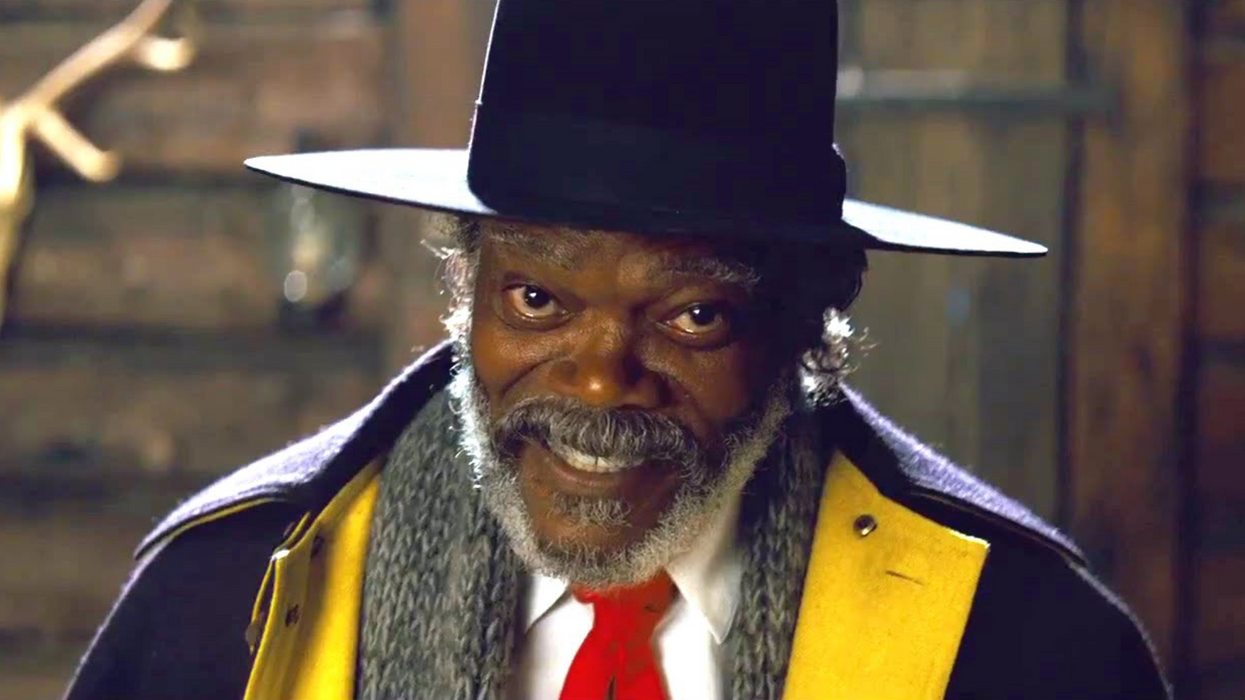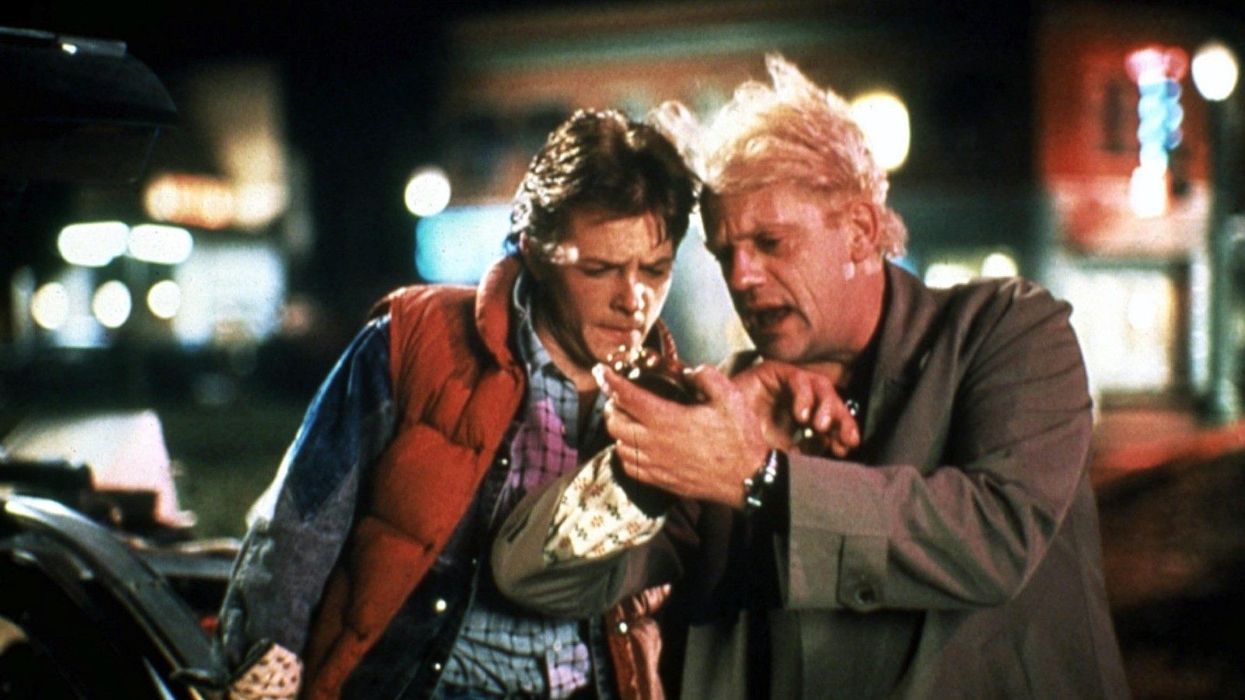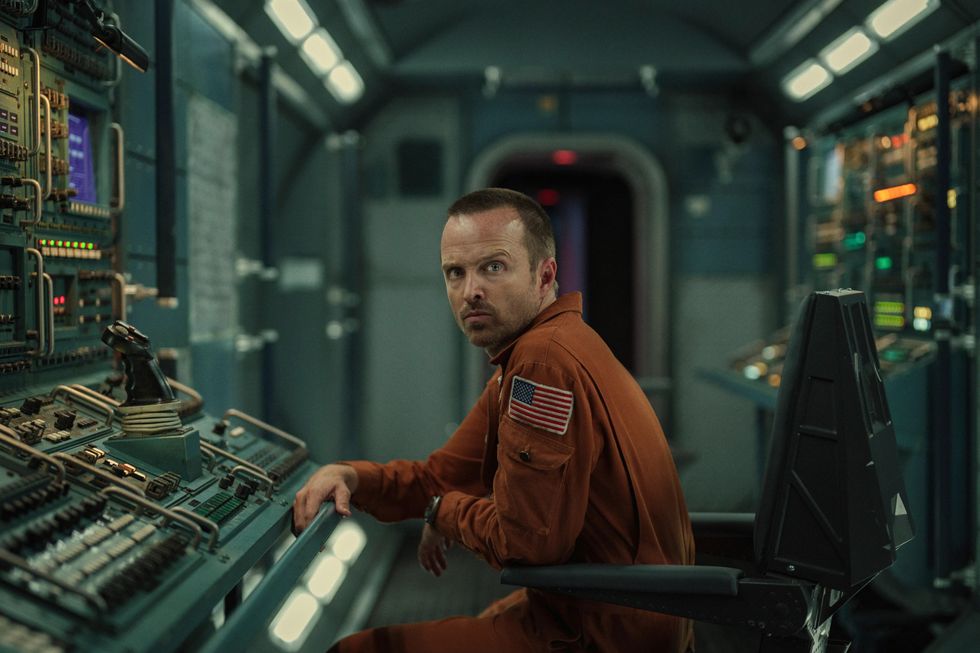Download the 'Hateful Eight' Script PDF and Learn "Voice"
The Hateful Eight script reveals an Agatha Christie-like world where Quentin Tarantino pits angry western genre character archteypes at each other's throats amidst the tensions of the recently ended Civil War. This is Tarantino's voice singing at the top of its lungs. So what can you do to inject this bravado into your writing?

There are simply tons of screenwriting tools, resources, and books out there. But none of them can teach you this one incredibly important thing.
Know what it is?
Voice!
But what is "voice"?
Simply put, it's the way you write. Your "style on the page". And if that sounds vague and tough to grasp it only gets more daunting because it can take YEARS to find this, and refine it.
One way we can try to find our voice though is to look at others. Who has one of the most powerful and unforgettable voices in cinema history?
The aforementioned Quentin Tarantino of course.
We all know what he did with Reservoir Dogs and Pulp Fiction, but with eight films in the can it seems like he's now STILL refining his voice.
Today I want to cover The Hateful Eight script and talk about how writers find, establish, and refine their voices. We'll also talk about the ending of the film and how Tarantino blended genres to achieve something unique.
So crack the whip and get your horses moving!
Download The Hateful Eight Script PDF here!
The Hateful Eight script's voice
We know that your voice is what sets you apart as a writer. When you read the screenplays in this series, I hope you notice that each screenwriter has a distinct look and feel on the page. None of them look or feel like Tarantino, though.
But that's the point. In theory none of us should look and feel like each other.
And while that makes it a tiny bit counterintuitive to study other writers work to find our own voice, it'll make sense in the long run. Hopefully!
It's hard to teach voice with QT because he breaks every rule and convention. The writing regularly contains segues and embraces the fact that this is a blueprint for a movie. Still, he writes like the film is edited and I think there's a lot to glean.
Let's take a look at the opening pages of the screenplay, and we'll see what I mean.
Right away, you'll notice him signaling what he's going to shoot the movie on and then letting them know the effect.
Tarantino writes like he's showing you the movie, and he doesn't care what rules he breaks to do that. That's part of his voice!
He's writing what he sees in his head, and what we see in our heads is unique to us. The lesson here?
Abandon the rules sometimes and write what you visualize, exactly the way you visualize it. Don't get lost in trying to follow the rules that have been laid out over and over again. Do you think QT does that? He writes in his voice, with confidence.
I think we can also learn a lot from how Tarantino writes his action. He's not overcomplicated. Everything is spaced as individual shots. Meaning each action line is another shot in the scene. So when we read, we are editing the screenplay in our mind.
The way Tarantino refers to characters and describes their actions pops off the page. It does so because we can tell how much fun he's having writing it. The tone on the page reflects the tone on the screen. That's an important thing to remember as a writer; you need to guide the audience's emotions. The better you are at guiding, the better your voice will develop on the page.
Take a look at this video where QT talks about how he wrote the Hateful Eight screenplay and what made him decide this should be his eighth film.
The Hateful Eight script ending
Voice doesn't just mean the words on the page; it also is about the story you're trying to tell. The ending to Hateful Eight leans heavily into the western genre, with a shootout to end all shootouts. In the wake of the littered bodies, only two men survive. Though each is mortally wounded.
Major Warren and Chris have been at odds the whole movie. Chris is a racist; Major Warren is a black man.
In this final scene, we see a companionship, a bond over a Lincoln letter that is undeniably fake.
Now, I'm not sure if my Film Theory is correct here, but to me, it feels like Tarantino is taking a stab here at tenuous race relations, and the false promise that everyone can come together over a common enemy. This reflects on the time in the Civil War and the Jim Crow years that followed, even through today.
We can find common ground, but our peace is based on false hope.
Now, is that the bible-truth in this movie? It's hard to tell.
Part of Tarantino's voice has always been describing himself as a dialectic of two worlds. The kid from the video store who grew up in poor neighborhoods, and the famous movie director. Could it be those worlds are wrestling with each other at the end of this film?
I can't be sure, but I'd love to hear your opinions.
Either way, Tarantino's story is one that makes the audience search for answers. It makes us question his world view and use it to formulate our own. All his movies set a challenge about what we know or what we think is moral and just. That's as much his voice as what happens on the page.
And it's what makes him a master screenwriter.
So the next time you sit to write, think about how you can influence the way the audience thinks and feels. What are your intentions, and how can your writing clue us in on those big questions?
What's next? Read the Pulp Fiction script!
After Reservoir Dogs, Quentin Tarantino needed a hit. He had come onto the scene as a brash and independent thinker, but he set his sights on the ultimate prize. He wanted to be Hollywood royalty, a legendary director. He wanted people to listen and to see the Los Angeles he saw every day: the underbelly, the slick and degenerate criminal world. He locked himself in a hotel room with Roger Avary, and they cracked Pulp Fiction. A few months later, it was in producers' hands, then shooting, and finally...shaking up the world.
Click the link to learn more!














